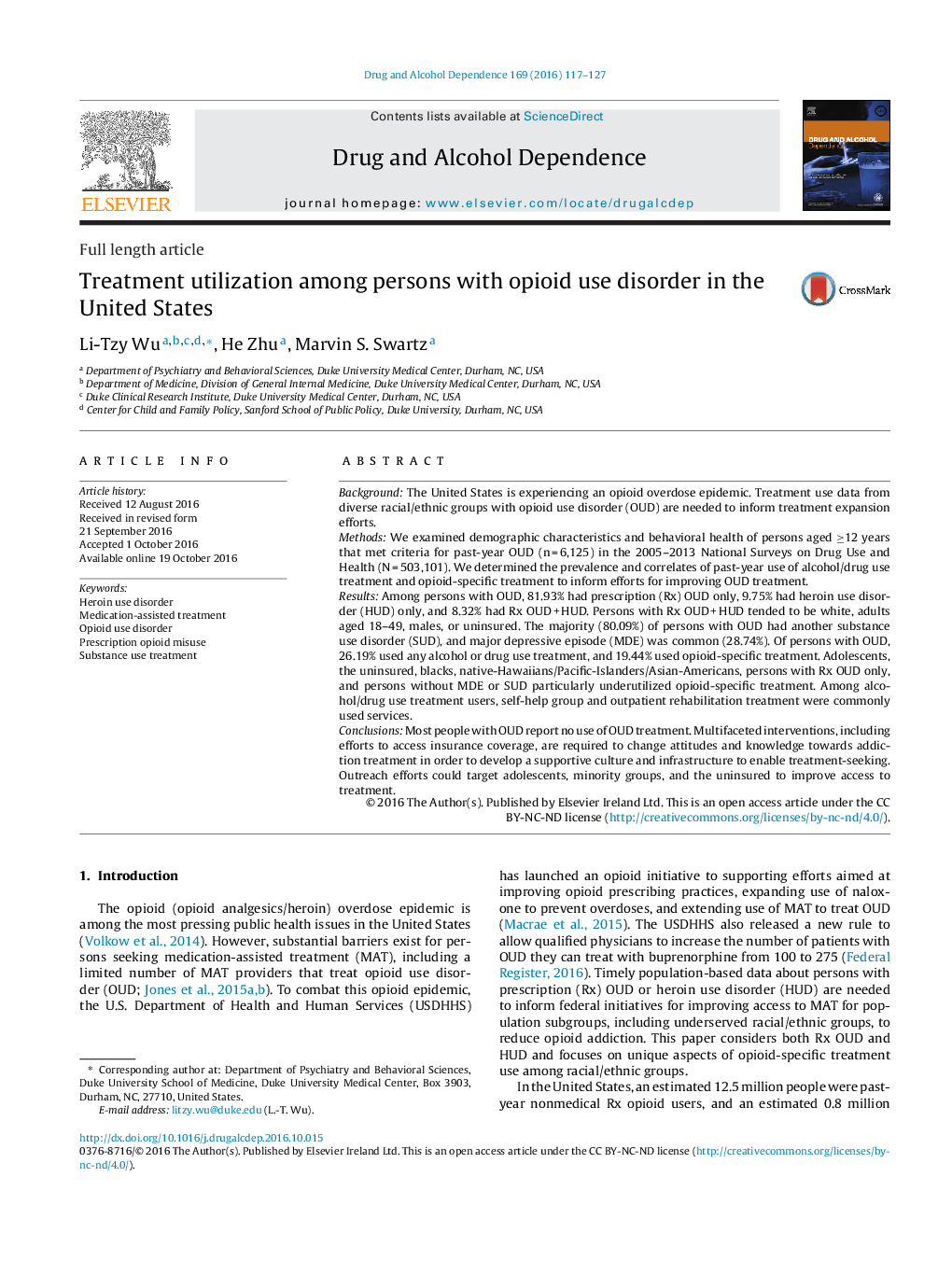| Article ID | Journal | Published Year | Pages | File Type |
|---|---|---|---|---|
| 5120421 | Drug and Alcohol Dependence | 2016 | 11 Pages |
â¢Of persons with opioid use disorder (OUD) nationally, 18% had heroin use disorder (HUD).â¢Persons with Rx OUD + HUD tended to be white, uninsured, or adults aged 18-49 years.â¢Of persons with OUD, 26% used any alcohol or drug use treatment in the past year.â¢Of persons with OUD, 19% used opioid-specific treatment.â¢Adolescents, the uninsured, blacks, those with Rx OUD only and had low odds of treatment use.
BackgroundThe United States is experiencing an opioid overdose epidemic. Treatment use data from diverse racial/ethnic groups with opioid use disorder (OUD) are needed to inform treatment expansion efforts.MethodsWe examined demographic characteristics and behavioral health of persons aged â¥12 years that met criteria for past-year OUD (n = 6,125) in the 2005-2013 National Surveys on Drug Use and Health (N = 503,101). We determined the prevalence and correlates of past-year use of alcohol/drug use treatment and opioid-specific treatment to inform efforts for improving OUD treatment.ResultsAmong persons with OUD, 81.93% had prescription (Rx) OUD only, 9.75% had heroin use disorder (HUD) only, and 8.32% had Rx OUD + HUD. Persons with Rx OUD + HUD tended to be white, adults aged 18-49, males, or uninsured. The majority (80.09%) of persons with OUD had another substance use disorder (SUD), and major depressive episode (MDE) was common (28.74%). Of persons with OUD, 26.19% used any alcohol or drug use treatment, and 19.44% used opioid-specific treatment. Adolescents, the uninsured, blacks, native-Hawaiians/Pacific-Islanders/Asian-Americans, persons with Rx OUD only, and persons without MDE or SUD particularly underutilized opioid-specific treatment. Among alcohol/drug use treatment users, self-help group and outpatient rehabilitation treatment were commonly used services.ConclusionsMost people with OUD report no use of OUD treatment. Multifaceted interventions, including efforts to access insurance coverage, are required to change attitudes and knowledge towards addiction treatment in order to develop a supportive culture and infrastructure to enable treatment-seeking. Outreach efforts could target adolescents, minority groups, and the uninsured to improve access to treatment.
